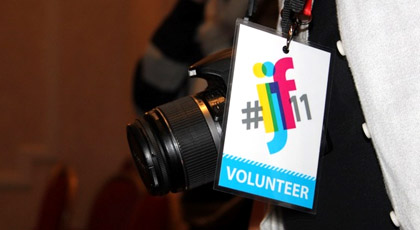 Journalisted is an independent, not-for-profit website built to make it easier for you, the public, to find out more about journalists and what they write about. It is run by the Media Standards Trust, a registered charity set up to foster high standards in news on behalf of the public, and funded by donations from charitable foundations. Each week Journalisted produces a summary of the most covered news stories, most active journalists and those topics falling off the news agenda, using its database of UK journalists and news sources.
Journalisted is an independent, not-for-profit website built to make it easier for you, the public, to find out more about journalists and what they write about. It is run by the Media Standards Trust, a registered charity set up to foster high standards in news on behalf of the public, and funded by donations from charitable foundations. Each week Journalisted produces a summary of the most covered news stories, most active journalists and those topics falling off the news agenda, using its database of UK journalists and news sources.
Debt Crisis, Palestine and Dale Farm
for the week ending Sunday 25 September
- The Eurozone debt crisis and a tumultuous week for world markets was this week’s lead story
- Palestine’s bid for statehood and Dale Farm travellers’ resistance to eviction covered lots
- Floods in China, successful conjoined twins operation, and Nepal plane crash covered little
Covered lots
- The debt crisis as world financial markets experience a volatile week, 353 articles (including Christine Lagarde, head of the IMF, 112 articles and Eurozone crisis, 102 articles)
- President Mahmoud Abbas demands formal UN recognition of Palestinian State, 188 articles (including US threatening veto, 103 articles)
- Travellers at Dale Farm resist eviction attempts from Basildon council, 120 articles
- Labour Party Conference commences in Liverpool, 80 articles
Covered little
- Growing death toll as huge floods in China force millions from homes, 11 articles
- UK surgeons successfully separate two twin girls joined at the head, 9 articles
- Nineteen Mount Everest tourists killed in Nepal plane crash, 8 articles
- French Socialists win majority in French Senate elections for first time in half a century, 4 articles
Political ups and downs (top ten by number of articles)
- David Cameron: 445 articles (-18% on last week)
- Nick Clegg: 301 articles (+14% on last week)
- George Osborne: 250 articles (-32% on last week)
- Vince Cable: 212 articles (+36% on last week)
- Ed Miliband: 207 articles (+23% on last week)
- Tony Blair: 170 articles (+16% on last week)
- Chris Huhne: 137 articles (+83% on last week)
- Gordon Brown: 128 articles (+73% on last week)
- Danny Alexander: 105 articles (+21% on last week)
- Ed Balls: 103 articles (+39% on last week)
Celebrity vs. serious
- Zara Phillips flies to New Zealand and her husband Mike Tindall after ‘bar blonde’ incident, 77 articles, versus sustained violence in Yemen kills dozens and wounds hundreds, 67 articles
- Rock band REM split up after 31 years, 16 articles, versus ‘Don’t Ask, Don’t Tell’ policy in US military comes to an end, 15 articles
- The X Factor USA debuts, 26 articles, versus News International offers Dowler family multi-million pound settlement over alleged phone-hacking, 26 articles
Arab spring (countries & current leaders)
- Israel and Prime Minister Netanyahu: 102 articles (+155% on previous week)
- West Bank and President Abbas: 88 articles (+120% on previous week)
- Libya’s National Transitional Council: 58 articles (-44% on previous week)
- Yemen and President Saleh: 55 articles (+400% on previous week)
- Gaza and Hamas: 34 articles (+113% on previous week)
- Iran and President Ahmadinejad: 31 articles (+35% on previous week)
- Saudi Arabia and King Abdullah: 23 articles (+475% on previous week)
- Syria and President Assad: 21 articles (-36% on previous week)
- Turkey and Prime Minister Erdogan: 15 articles (-48% on previous week)
- Bahrain and King Al Khalifa: 4 articles (+300% on previous week)
- Jordan and King Abdullah: 3 articles (+200% on previous week)
- Egypt’s Military Council: 1 article (-91% on previous week)
- Qatar and Sheikh Hamad bin Khalifa Al Thani: 1 article (unchanged on previous week)
Who wrote a lot about… Troy Davis’ execution in Georgia, US
- Guy Adams – 6 articles (The Independent)
- Giles Whittell – 2 articles (The Times)
- Nick Allen – 2 articles (Daily Telegraph)
- Brendan O’Neill – 2 articles (Daily Telegraph)
Long form journalism
- 3,337 words: ‘Victory on a plate’ – Cita Stelzer, The Sunday Times, 25 September 2011
- 2,476 words: ‘France’s burqa ban: women are ‘effectively under house arrest” – Angelique Chrisafis, The Guardian, 19 September 2011
- 2,310 words: ‘International Monetary Fund: Into the fire’ – Alan Beattie, Financial Times, 21 September 2011
Journalists who have updated their profile
- Katharine Quarmby is a freelance journalist who has written for the Sunday Times, The Guardian, Mail on Sunday, The Telegraph and for The Economist and Prospect magazines. She has written books about disability hate crime and is honoured with the One World Trust Award (1999) and the Radar People of the Year Human Rights award (2010). Follow Katharine on Twitter @katharineq
- Hunter Skipworth is a Contributing Editor at Pocket-lint – an independent gadget news and reviews site. He previously worked as a Technology Reporter and Intern at the Daily Telegraph while taking a BA in Journalism and Contemporary History at City University, London. You can follow Hunter on Twitter @Hunterskipworth
Read about our campaign for the full exposure of phone hacking and other illegal forms of intrusion at the Hacked Off website
Visit the Media Standards Trust’s Churnalism.com – a public service for distinguishing journalism from churnalism
The Media Standards Trust’s unofficial database of PCC complaints is available for browsing at www.complaints.pccwatch.co.uk
For the latest instalment of Tobias Grubbe, journalisted’s 18th century jobbing journalist, go to journalisted.com/tobias-grubbe
